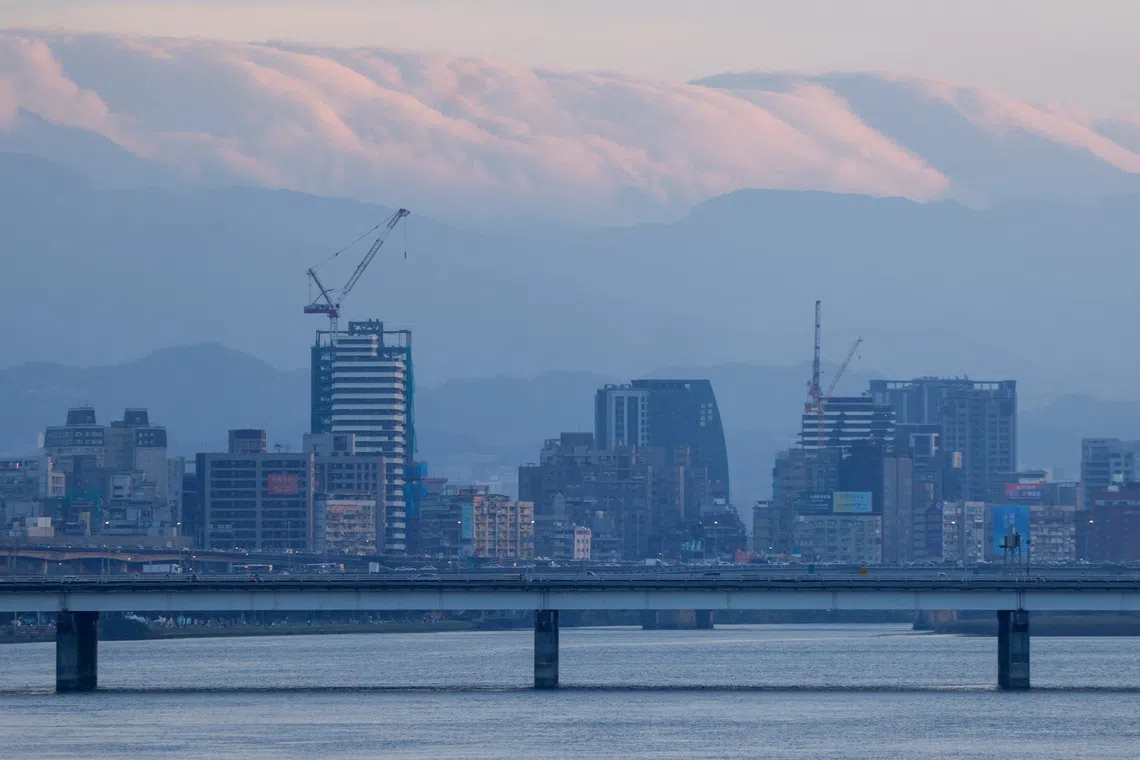Taiwan Premier Firmly Rejects China's "Return" Claim Amid Sovereignty Tensions & WWII Legacy Dispute
 Taiwan
Geopolitics
Taiwan
Geopolitics

Taiwan Premier Cho Jung-tai declared "return" to China is not an option for its 23 million people, refuting Xi Jinping's claims post-WWII. Taipei rejects Beijin
Taiwan Premier Firmly Rejects China's "Return" Claim Amid Escalating Tensions
The political chasm between Taiwan and China widened recently as Taiwan's Premier, Cho Jung-tai, unequivocally stated on November 25 that a "return" to China is not an option for the island's 23 million citizens. This declaration directly counters Chinese President Xi Jinping's assertions made during a call with US President Donald Trump, where Xi emphasized Taiwan's post-World War II "return to China" as a cornerstone of Beijing's global vision.
Taipei's Unwavering Stance on Sovereignty
Taipei's democratically elected government has consistently rebuffed Beijing's claims, with Premier Cho asserting outside Parliament, "We must once again emphasise that the Republic of China, Taiwan, is a fully sovereign and independent country." He reiterated the sentiment of the Taiwanese populace, stating, "For the 23 million people of our nation, ‘return’ is not an option – this is very clear."
Under Taiwan's governmental structure, while the Premier manages daily operations, the President typically oversees defense and foreign affairs. President Lai Ching-te has already rejected China's proposed "one country, two systems" model, a framework that lacks support across Taiwan's political spectrum.
Regional Tensions and Historical Disputes
Regional tensions have escalated, particularly following Japanese Prime Minister Sanae Takaichi's November statement hinting at a potential Japanese military response to a hypothetical Chinese attack on Taiwan. Beijing considers Taiwan its most crucial and sensitive diplomatic issue. Meanwhile, US President Trump, in a Truth Social post after his call with Xi, highlighted progress in trade talks and "extremely strong" relations with China, notably omitting any mention of Taiwan discussions.
Taiwan has repeatedly accused Beijing of misrepresenting the historical context of World War II, which concluded 80 years prior. Specifically, Taiwan points out that it was handed to the Republic of China government at the war's end, a distinct entity from the People’s Republic of China, which was established only in 1949 after Mao Zedong's communist forces defeated the Republic of China, leading the latter to relocate to Taiwan.
Beijing's Counter-Arguments and Military Pressure
Taiwanese Foreign Ministry spokesman Hsiao Kuang-wei, speaking from Taipei, criticized China's distortion of WWII facts and referenced earlier US comments regarding Beijing's attempts to leverage historical documents to pressure and isolate Taiwan. Hsiao condemned China's "authoritarian expansionist nature" for repeatedly trying to intimidate its neighbors, including Taiwan and Japan.
In response, Beijing's Foreign Ministry spokeswoman Mao Ning reiterated China's position, asserting that the People’s Republic of China became the legal successor to the Republic of China in 1949, and that "China’s sovereignty and inherent territorial integrity remained unchanged."
China has never ruled out the use of force to bring Taiwan under its control and has intensified military pressure on the island. On November 25, Taiwan's Defence Ministry reported spotting a single balloon coming from China over the sensitive Taiwan Strait the previous day. These balloon sightings, common in winter, are perceived by Taiwan as part of China's ongoing harassment. Beijing's Defence Ministry has previously dismissed such complaints, categorizing the balloons as meteorological equipment and urging against their politicization.